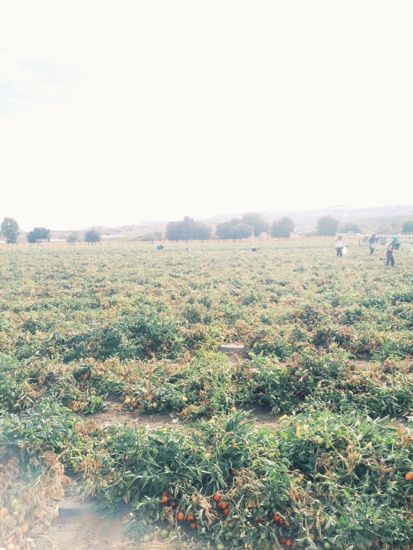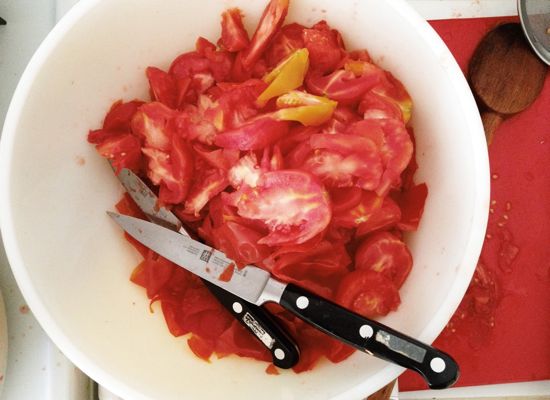Living with Poetry is an occasional series where we explore how poetry infuses our everyday lives. Catch up with past features here.
It seems the simplest of things: flour, water, yeast. But bread can be an intimidating creature. It feels as if you need a full day simply to tackle even the idea of homemade bread. Perhaps an entire weekend even, and finally on Sunday night you resolve that the following weekend you'll give it a go.
The following weekend turns into the following month, sometimes. It did for me, but I've found bread to be something that simply waits for you. It doesn't pester you with text messages or late-night email reminders. It doesn't tug at your shirt like a toddler learning to stand. It doesn't beg. Bread does not boast that it is easier than baking muffins or making soup. It says nothing until releasing slow breaths while rising on the counter.
For months I had bookmarked Alex and Sonja's bread recipe, by way of baker Zoe Francois. It reminded me of one of the favorite loaves I've been ordering from Good Eggs lately, and I had an itch to make it myself when I had a spare moment. Over the holidays, that moment arrived. Bread was one of the many things I cooked in my kitchen in December while catching up on Downton Abbey and leafing through Neruda's odes yet again. (Never mind that it's taken me this long to write about it.)
Bread,
you rise
from flour,
water
and fire.
Dense or light,
flattened or round,
you duplicate
the mother's
rounded womb,
and earth's
twice-yearly
swelling.
How simple
you are, bread,
and how profound!
-from "Ode to Bread" by Pablo Neruda
I'm always grateful of the reminder that such plain ingredients can do their magic with hardly any fuss. And in case you're missing out on bread's transformative powers because of fear or past failures, it's worth noting that I'm not a master bread maker. Not even close. I'd say my odds are about 50/50 that a loaf comes out just right, but the fact is that even a disappointing loaf of homemade bread, with a soft chew and yeasty perfume, tastes better than anything you can buy. Just slather with butter and sprinkle with Maldon salt and it will be very, very good.
How simple, and how profound. Neruda has it right.
















